🌍 Get yourself connected 🤝
How community stitches us together: from soil health to homegrown jeans
Welcome to BRiMM, the collective, journal and planet-positive shop that’s here to help you live a lower-impact life, without life feeling less
Before we get down with being more grounded, here’s the latest from BRiMM:
We’re thrilled to announce that for our next BRiMM community event, we’re partnering with British Pasture Leather to bring you an experiential Field Day programme. Learn from experts as we explore the realities of regenerative agriculture and illuminate the positive impacts of local food, farming and fibre systems. It’s on Friday 10 October at Weston Park Farms in Hertfordshire and includes a delicious lunch. Buy your tickets now.
Want to be the first to hear about our in-person community events? Our members get priority booking and special member pricing, so join BRiMM to get exclusive dibs for our next one.
Plus, subscribe to this newsletter for free if you haven’t already, to receive new posts, support our work and hear about all the exciting stuff before anyone else.
This week’s theme is… connectedness 🔗
When was the last time you took your shoes off and felt the ground beneath your feet? Really connected with the soil, the grass, the sand. With this planet we all call home. In a concrete-covered world where convenience is at our digital fingertips, many of us find ourselves completely disconnected from the Earth, as well as our fellow inhabitants.
So this week we’re celebrating the many people on a mission to reconnect, whether that’s by putting hands in the soil, or even simply by joining a group and feeling part of a community. Because it turns out that these things - soil and society - are intrinsically intertwined. And we can all benefit from that.
It was the panel talk after our screening of the film Common Ground that got us mulling over the idea of connectedness (not, as the headline of this article implies, a well-timed listen to the Stereo MCs 90s banger ‘Connected’, although feel free to whack that on as this newsletter’s soundtrack). Our panelists, all pioneers in regenerative practices in their own businesses, from olive oil to fashion, cited a feeling of connection as a driving force behind what they do. Sarah Alun-Jones is from Sitopia Farm in Greenwich, London, which grows vegetables and flowers using organic, regenerative and no-dig principles and sells them directly to the local community, chefs and florists.
“I think that food and farming is a huge answer to the climate crisis,” she says. “It's a really easy way to connect everybody to the natural world. I really do believe that all of the problems that we're facing, from the climate crisis, mental health crisis, obesity - everything - all come down to a fundamental disconnection from the natural world. The first part of it is understanding how disconnected we are, and starting to reconnect. And I think that local food, small, resilient farms and local food systems can do all of that.”
Food is certainly one of the most straightforward ways to nurture connectedness with the Earth. However small your home space, it’s possible to wonder in the magic of growing your own food from seed and eating the rewards, whether that’s simply by sowing cress on a windowsill or replacing a houseplant with a fruiting chilli. We’ve even tried a more experimental crop of oyster mushrooms in a cupboard - The Caley Brothers home grow kits are brilliant for this.
But it’s so much more than just growing and eating. Food production has the power to reignite our connection with our local communities, too. Incredible Edible was founded in 2008 by Pam Warhurst and Mary Clear in Todmorden, West Yorkshire, because they both saw the wider potential in growing as “a visible sign of a kinder, connected community”. It is now a network of more than 170 growing groups around the UK, matching people together in their local areas as well as spearheading Right To Grow, which campaigns for the lifting of red tape so that communities can grow on unloved patches of public land. “An opportunity to take up our seed packets, spades and watering cans and nourish our communities, without all the hoop-jumping,” as they put it.
What we put on our bodies is as important as what we put in them, but it’s not always as obvious how our clothing and soil are related, as Amy Powney, founder of the brand AKYN and another of our Common Ground panellists explains.
“Consumers have a real connection to the field when they're eating their food, a visual representation and understanding,” she says. “But in fashion, people have completely forgotten where their fibres come from. There's a giant disconnect.”
Remembering that we can effectively grow our clothes, rather than creating fabric from petroleum, and that natural fibres are better for both people and the planet, helps to find a sense of grounding in what we wear. Rootfull is a literal representation of this, an ingenious technique of growing organic, locally sourced textiles to shape through beeswax templates. It takes just two weeks to go from seed to harvest, and any excess shoot or seed is then used as animal fodder. Meanwhile, the short film Woman Grows Jeans is a beautiful documentation of Justine Aldersey-Williams’ journey to do just that. In a bid to highlight our damaging denim overconsumption - the UK buys 70 million pairs per year - she and a team of volunteers take 600 hours to handmake the UK’s only pair of homegrown jeans as a provocative signpost towards a possible future.
So whether it’s getting to know your onions, literally, or learning the true origins of your favourite overcoat, take some time this week to consider how growing both plants and communities has a positive effect on the soil and society. Because we can all do better, together.
Team up, tune in and let’s turn the tide,
BRiMM x
History shows that if just 10% of people are committed to change, we can tip the balance. So while we can’t mindlessly shop our way out of the climate crisis, perhaps by supporting the brands that are genuinely doing things better, we really can make a difference. That’s the thinking that Bob Sheard explores in the latest read on our Journal. His book, The Brand New Future – How Brands Can Save The World, is a manifesto for CEOs on how to use brand design not just to grow, but to grow differently, in a way that allows our planet and everyone on it to survive and thrive.
“At a time when the climate crisis feels overwhelming and most of us have lost faith in politicians, there’s one surprisingly powerful force that still has the potential to drive positive change: brands. Yes, brands, the very entities many have accused of fuelling overconsumption, might just be our best shot at designing a more sustainable future.”
From fishing footwear that heals the planet with every step, to technical jackets designed to last 20 years, Bob showcases five brands that are reshaping the future, and ways that we can all be a part of it.
The BRiMM collective has also put its hive mind to exceptional use this week with a round-up of our favourite independent coffee shops. And we’ve gone global for this one! Whether your caffeine fix is a cortado or a cold brew, there’s something for everyone (including the non-coffee lovers among you).
BRiMM’s first Planet Fund project
Here at BRiMM, every purchase powers positive change. Because we invest a minimum of 10% of net revenue into our Planet Fund, which in turn is investing in initiatives to lower the impact of the brands we stock.
With our first Planet Fund initiative, we’re working with two innovative energy companies; Urban Chain and OneZero Energy, in order to bring more renewable, solar power energy to the businesses who create the products we sell. This means that the brands you see on BRiMM can switch to a cleaner energy mix, with the aim of reaching 100% renewable. And here’s the kicker: they can do it for less than they are paying now. Find out more over on our Journal.
The BRiMM Life Questionnaire: Chris Torpey
This week it’s the turn of Chris Torpey, co-founder of music venue Future Yard in Birkenhead in Merseyside, to answer our BRiMM questionnaire. Established in 2021 as a new venue in the town, it also provides live industry training and is a regional hub for artist development. “We believe that music venues are the maternity wards of creative culture,“ they say. “They are always the trailblazers, the first cultural flagpole when it comes to thinking about a place differently.” Future Yard has also pledged to become the first carbon-neutral grassroots music venue in the north of England.
Indie record store tip
“Go and ask the staff what they recommend, or what’s new. Don’t be intimated by the stereotype of record store staff - they’re experts, and it’s a waste to not pick their brains! When I go to a record store on holiday, I like to ask the staff to suggest some local artists, because I want to take something home from the place I’ve visited. You’ll be surprised at how much you’ll learn, and how many other shoppers get involved! Also, don’t ever not go into Sounds Of The Universe if you’re near Soho, it’s the best.”
Favourite walking route
“Anywhere along the coast of Wirral! We’ve got the longest prom in the country here, and I grew up right by it. It’s really relaxing to walk along from Seacombe Ferry up to New Brighton, watching the weather come down the river and the boats coming in and out, people going by. You’ve got the big, wide open vistas on the Irish Sea when you turn the corner, and gorgeous nature intrudes on the Dee side; but I love the quiet churn of the Mersey on the Left Bank side.”
Who is your planet-positive hero?
“James Gillaspy, our Sustainability Lead at Future Yard. He’s tireless, passionate and really insightful about all the work he does, and is taking us on a journey to become operationally net zero by 2030. He’s also a lovely guy and he has a wand of a left foot when playing football!”
What is love?
“It is a warm blanket of support and trust and respect, the freedom to get things wrong and learn from them, knowing that someone else has your back, and the tingles that run down your spine or cause your heart to swell.”
The full interview with Chris will be live on our Journal soon - in the meantime, listen to his playlist (below) and check out our latest full Q&A with BRiMM’s Community and Events Lead, Helen Kirkum
FROM THE COLLECTIVE
Charlotte is loving The People’s Mending, a clothing repair book and workshops that encourage wardrobe longevity
Bottle feeding some calves at Surrey Docks Farm is on Helen’s mind this week - an incredibly cute way to spend your spare time
Sam is very into Oquist, the waterless skincare brand that comes in a reusable terracotta work of art
We love to hear what our collective is finding. Share your links with us in our Substack chat or send us an email
THIS WEEK’S LINK RECCOS
DISCONNECT TO RECONNECT
Unplugged’s cabins, all around an hour from busy city life, offer the chance for a proper digital detox. Lock your smart phone away (literally: they have boxes with padlocks and old Nokias for emergencies), then switch off, destress and fully relocate yourself, within nature.
→ BOOK A BREAK
KNIT PICKING
In the market for some traditional woollen gear made by home-knitters right here in the UK? London-based brand O’Pioneers uses a collective of women to make all of its knitwear, from Annie Hall-inspired tanks to puff-sleeved roll necks. They even swap knitting tips on WhatsApp.
→ SEE MORE
COME TOGETHER
When we think of ourselves as citizens rather than consumers, we’re more likely to participate, volunteer and assemble or join up to make our society stronger. That’s the thinking at New Citizen Project, which works with organisations from the Guardian to the RSPB.
→ FIND OUT MORE
GRANNY’S BELGIAN BUNS
The collective was craving something sweet this week, so we’ve obliged with a delicious recipe from Baking with Granny, the website dedicated to keeping one family’s generational recipes alive. Cherries? Lemon curd? Icing? What’s not to love about this swirl of sticky goodness. Amy Reid, who founded Baking with Granny to document her mum Christine’s brilliant back catalogue, will have her first book, Scottish Bakes, published in October.
→ MAKE ME
MUSIC TO LIFT YOU UP HIGH
Turn up these feel-good tunes from this week’s Q&A interviewee and music venue founder, Chris Torpey.
The carbon footprint of an email depends what device you use to open it, but sending you this one used about 3.5g of carbon.
You made it to the bottom! Congratulations, now have a look at our website and send us feedback to share what you think.
If you liked the above, do kindly leave a ❤️ . It will help circulate it more widely. You could even share it with anyone you think might like it. Thank you!


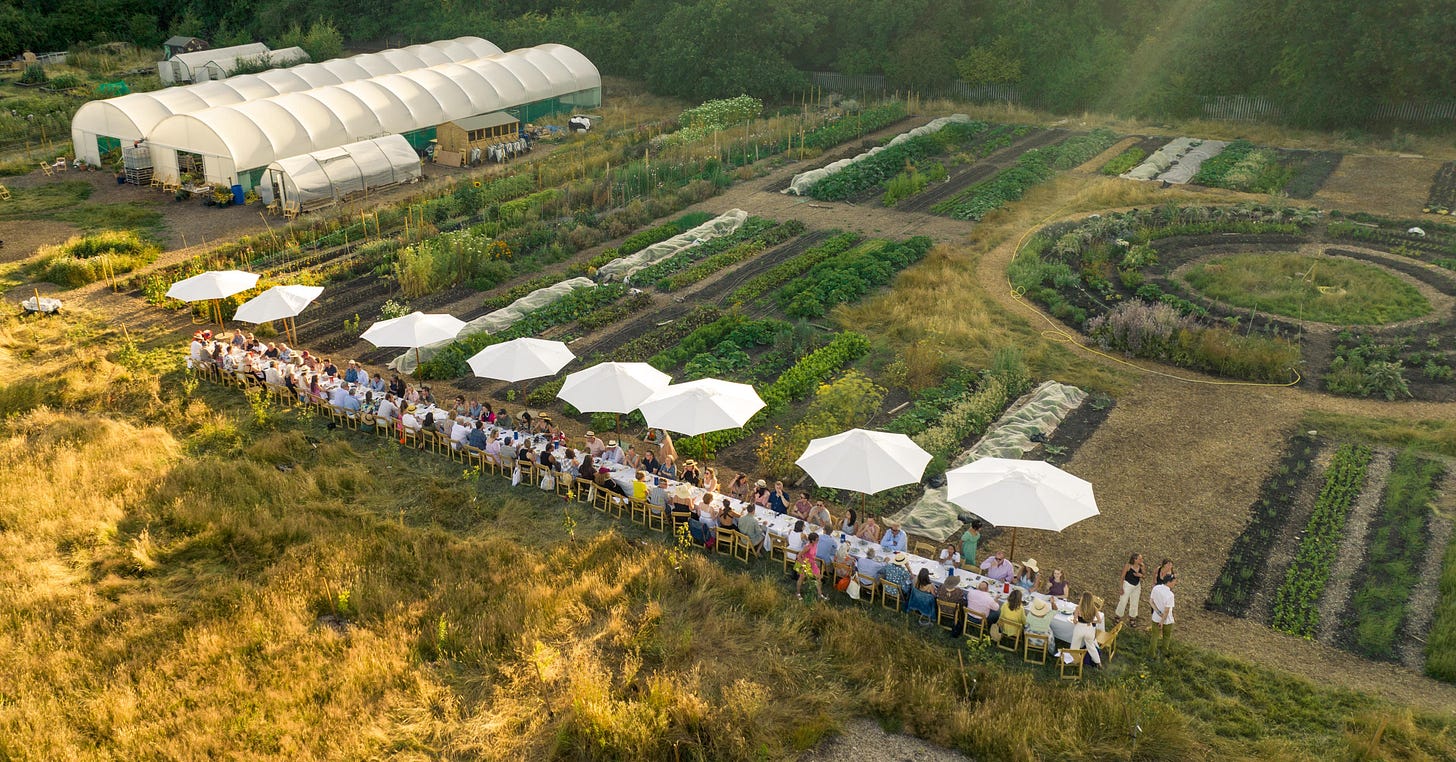
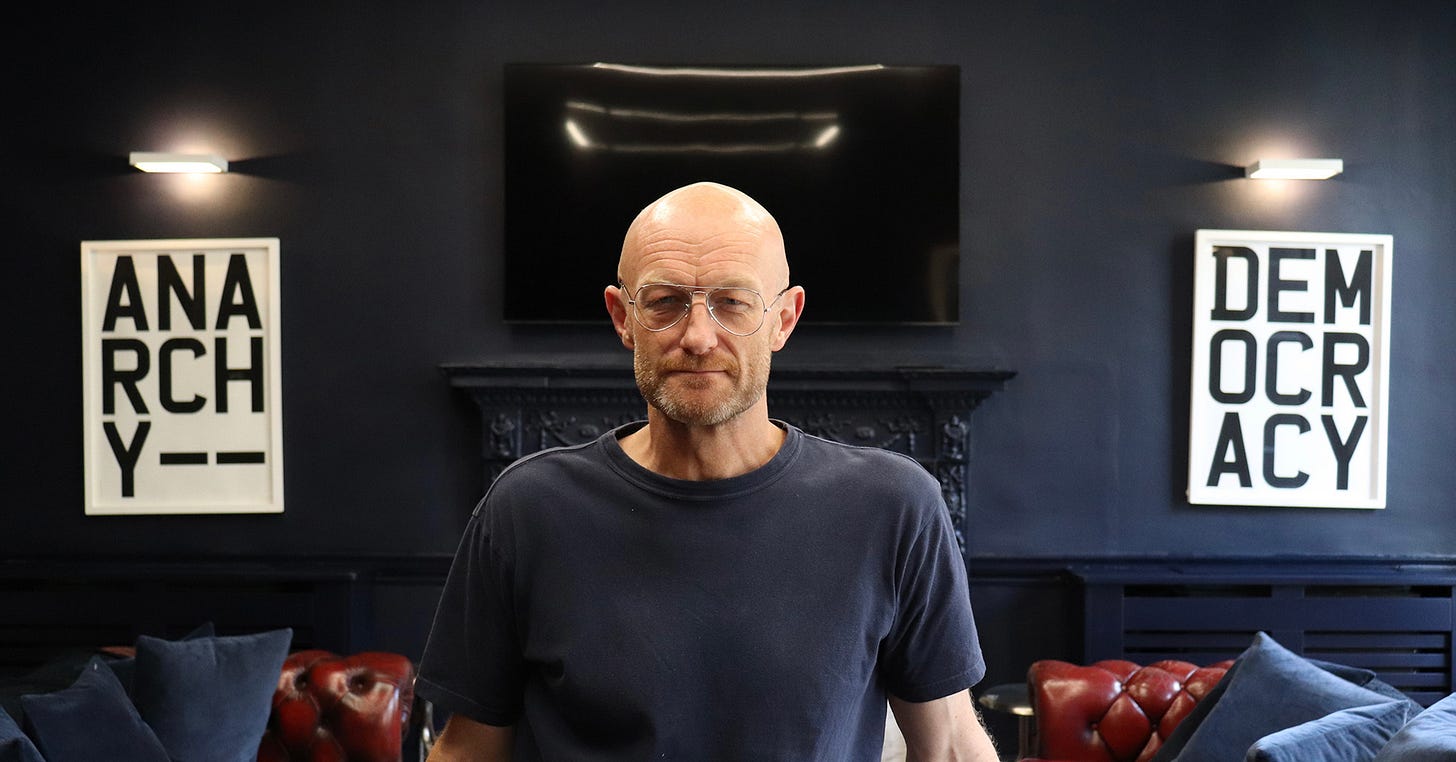
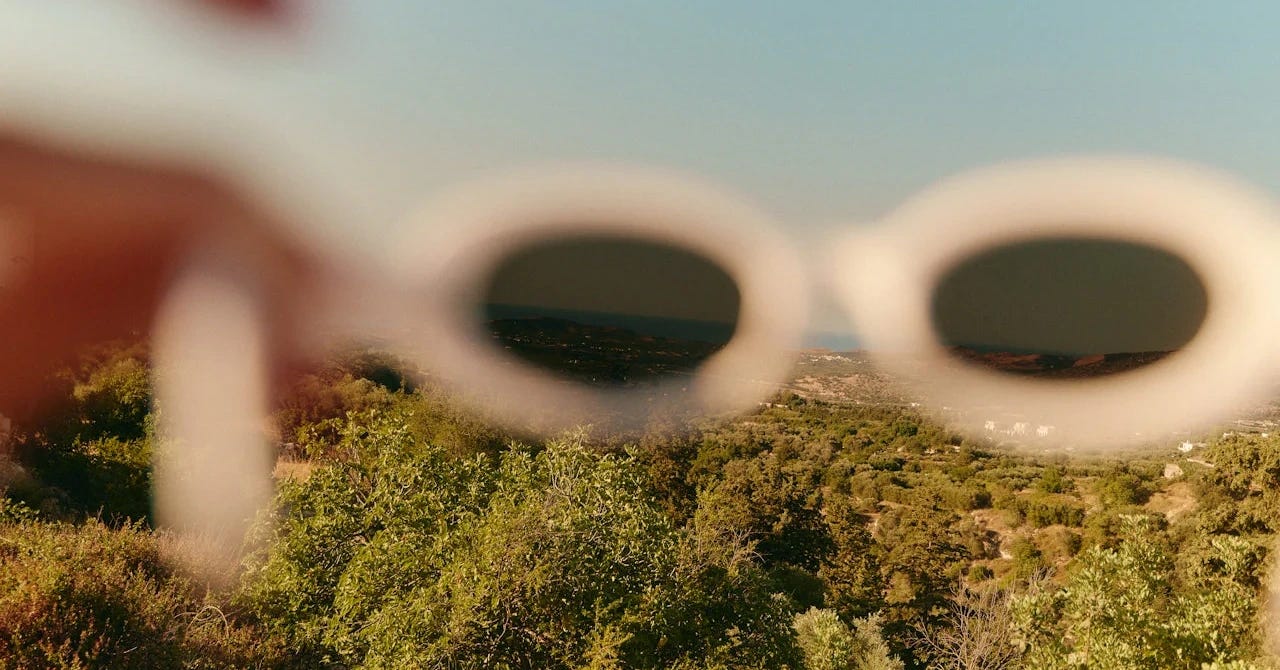
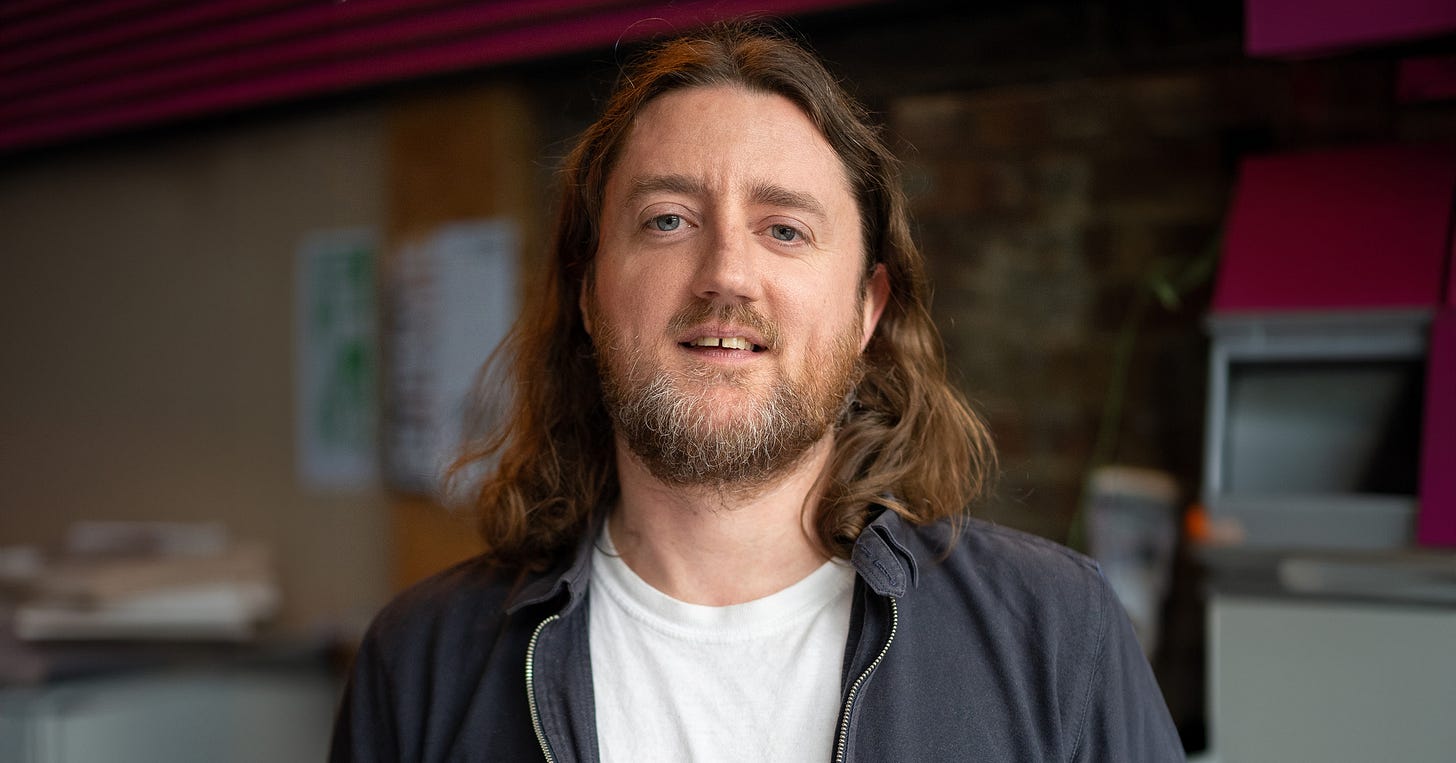
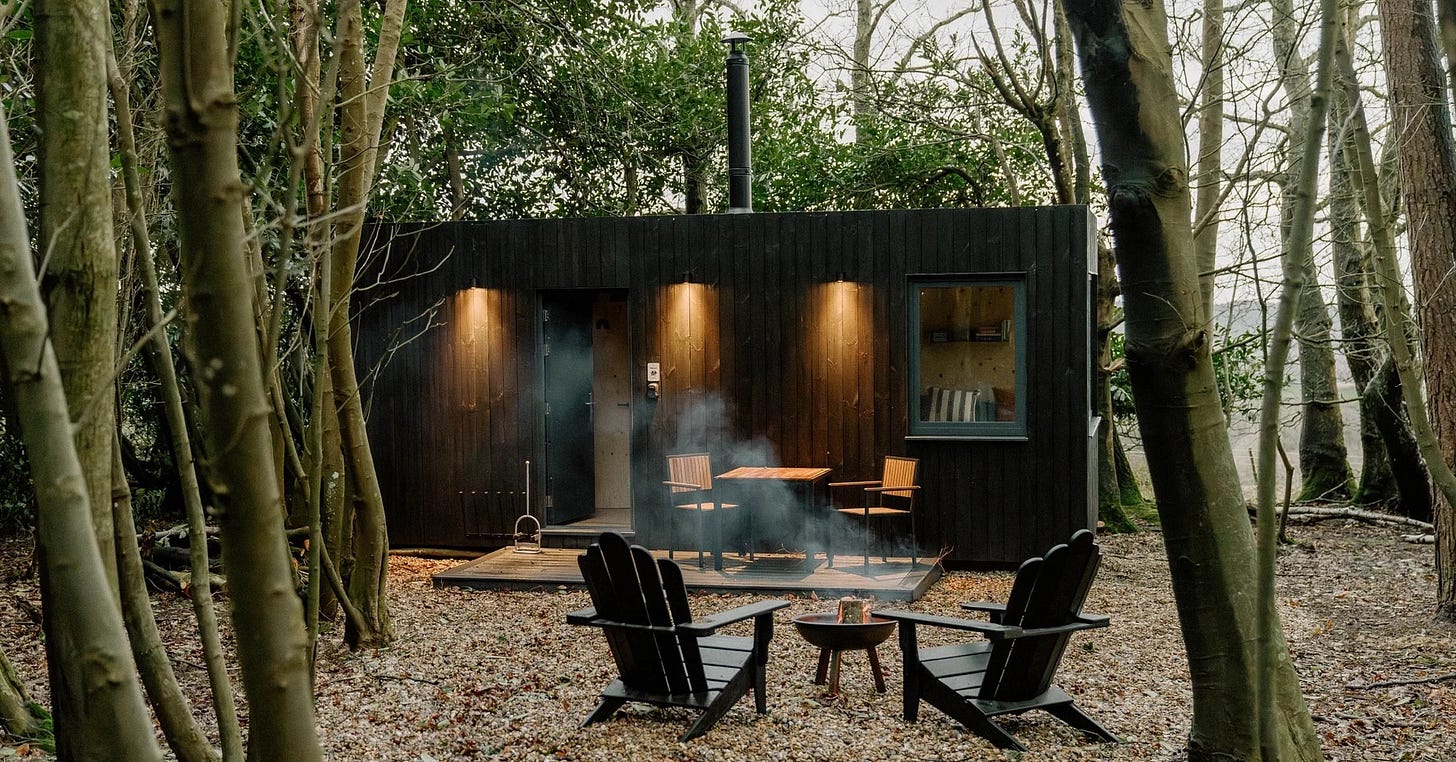

Thank you. Another informative read.